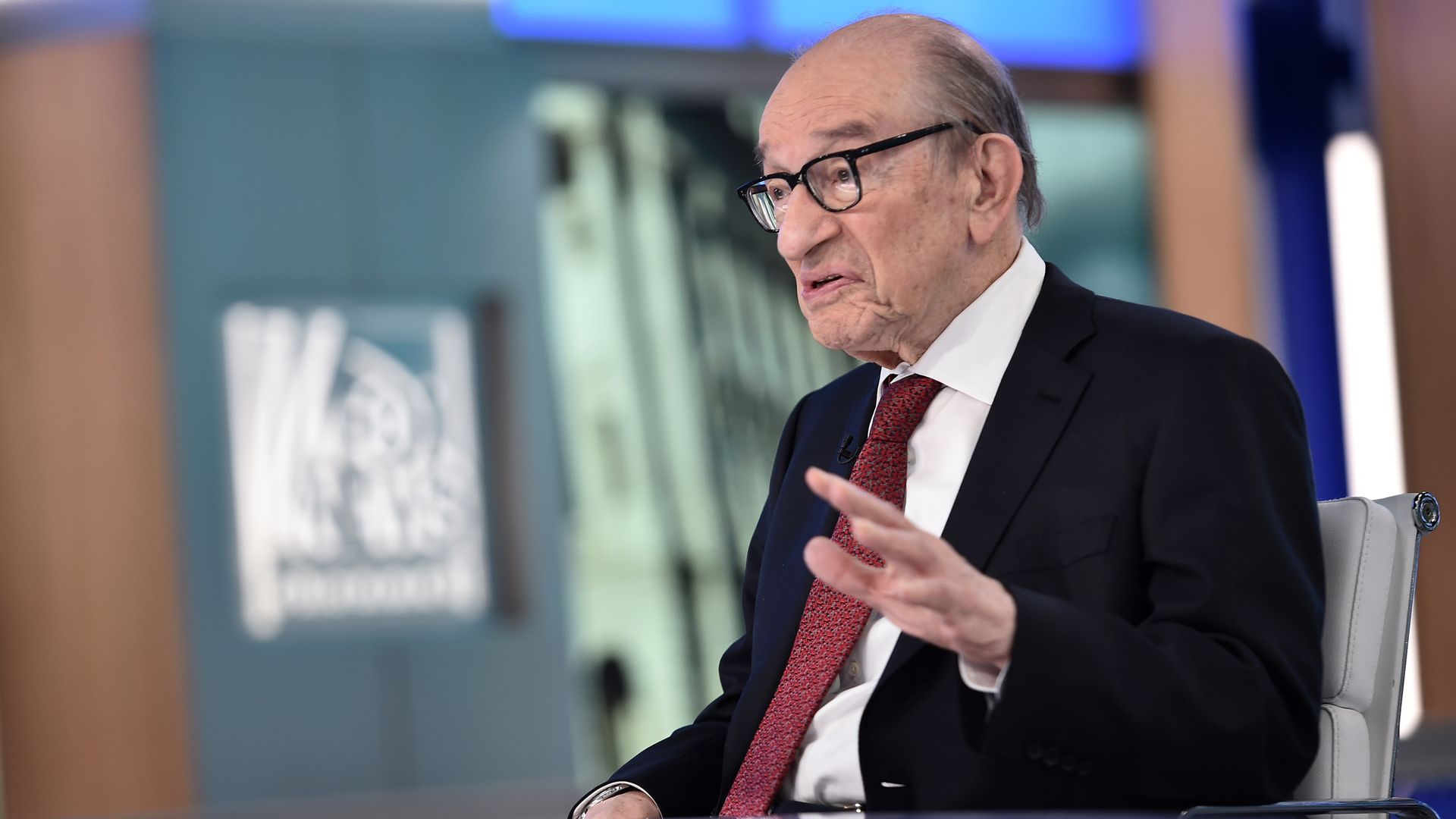Alan Greenspan backs a Fed rate cut
Add Axios as your preferred source to
see more of our stories on Google.

Alan Greenspan. Photo: Steven Ferdman/Getty Images
Former Fed Chair Alan Greenspan endorsed the central bank's expected rate cut at this month's FOMC meeting during an interview with Bloomberg TV on Wednesday.
Why it matters: Current Fed Chair Jerome Powell has shown admiration for Greenspan and getting his stamp of approval likely means a rate cut for July is a lock. Powell also could feel emboldened to adopt an even more dovish stance, acquiescing to the market's expectation of 75 basis points of cuts within the next year.
What he said: Greenspan said the idea of a rate cut in the face of possible risks to the economy — in this case the U.S.-China trade war — could be a good idea.
- "Forecasting is very tricky. Certain forecast outcomes have far more negative effects than others. It pays to act to see if you could fend it off."
Background: Powell paid fawning tribute to Greenspan during his speech at the Fed's Jackson Hole gathering last year, lauding the longtime Fed chief's insight, patience and strategy.
- Despite criticism laid on Greenspan for his loose views on regulation and policy that many argue were a major cause of the global financial crisis, Powell clearly reveres him, and so do other members of the Fed.
Between the lines: Vice chair Richard Clarida and Chicago Fed president Charles Evans, both FOMC voters, highlighted the Fed's decision to cut U.S. interest rates in September 1998 as prescient, even though unemployment had fallen to 4.5% and there were worries about inflation.
Flashback: At the time, the Fed was worried about the potential of the Russian financial crisis and the collapse of Long-Term Capital Management negatively impacting the U.S., much the way Powell and Co. have focused on negative developments from the trade war and weakness in Europe and Asia as potentially justifying a cut this year.
- “It is just not credible that the United States can remain an oasis of prosperity unaffected by a world that is experiencing greatly increased stress,” Greenspan said of his reason for cutting rates multiple times in 1998 despite the strong economy.
Yes, but: The Fed ended up backtracking on the cuts and raised rates in 1999 and 2000 ahead of the 2001 recession.
Go deeper: The case for a Fed rate cut
